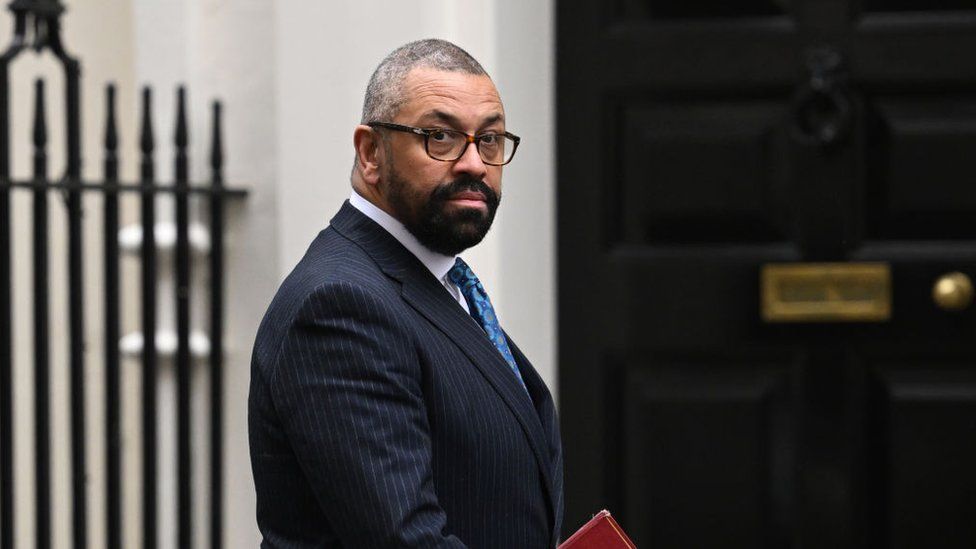ARTICLE AD BOX
 Image source, Getty Images
Image source, Getty Images
By Andre Rhoden-Paul
BBC News
The Foreign Secretary is set to call for the UK to have a more constructive but robust relationship with China.
James Cleverly will use a keynote speech later in London to set out Britain's approach to Beijing.
He will argue isolating China would be against the UK's national interest.
"No significant global problem - from climate change to pandemic prevention, from economic stability to nuclear proliferation - can be solved without China," he is expected to say.
Mr Cleverly will also use his speech at the Lord Mayor's Easter Banquet at Mansion House to warn China against building up its military forces and risking "tragic miscalculation" in the Pacific.
In a departure from tradition, in which foreign secretaries use the annual address to set out their views on a range of foreign policy matters, Mr Cleverly will devote his whole speech to speaking on China.
The foreign secretary will dismiss calls from some senior Conservatives to take a strictly hardline approach against China and will instead argue that the UK must engage with Beijing to tackle "humanity's biggest problems".
"It would be clear and easy - perhaps satisfying - for me to declare a new Cold War and say that our goal is to isolate China," Mr Cleverly is expected to say in his speech.
"Clear, easy, satisfying - and wrong. Because it would be a betrayal of our national interest and wilful misunderstanding of the modern world."
But he will urge to China to be transparent about its military expansion. It comes after earlier this month China held military drills centred on the self-ruled island Taiwan, which China sees as a breakaway province that will eventually be brought under Beijing's control - by force, if necessary.
"At this moment, China is carrying out the biggest military build-up in peace time history," Mr Cleverly will warn.
"Secrecy can only increase the risk of tragic miscalculation."
The address, attended by foreign ambassadors and high commissioners, will also condemn Chinese repression and pledge that the UK will continue highlighting the treatment of Uyghur people - the Muslim minority, Beijing is accused of committing systematic human rights abuses against and detaining hundreds of thousands of in camps.
If Mr Cleverly's rapprochement towards China led to an invitation to visit the country for talks, it would be the first time a British minister has made such a trip since then-COP26 President Alok Sharma went to Tianjin for climate talks in 2021.
However, the foreign secretary's comments could anger Conservative backbenchers, some of whom want the government to adopt a tougher approach to Beijing.
Former Prime Minister Liz Truss, who appointed Mr Cleverly in her previous role of foreign secretary in September, had urged ministers to ensure Beijing can never join the Indo-Pacific trade bloc - a trade pact featuring 11 Asia and Pacific nations.
And last year, former party leader Iain Duncan-Smith called China a "brutal, dictatorial, ghastly regime" in two separate TV interviews.
China is the world's most populous country with a 1.41 billion population and the world's second largest economy.
The UK's relationship with China has deteriorated in recent years following controversies including Chinese company Huawei's involvement in Britain's 5G network, concerns over threats to civil liberties in the former British colony of Hong Kong, and the threat of espionage and influence operations by China in the UK.
And in recent weeks, the popular video-sharing app Tiktok was banned on all government electronic devices, amid ongoing global concerns about whetjer the Chinese government could gain access to the data
It was only last year Mr Sunak used his own first foreign policy speech at Mansion House to say the so-called "golden-era" of relations with China was over and, along with the "naive idea" that more trade with the West would lead to Chinese political reform. Instead, he said the UK had to replace wishful thinking with "robust pragmatism".

 1 year ago
29
1 year ago
29








 English (US) ·
English (US) ·